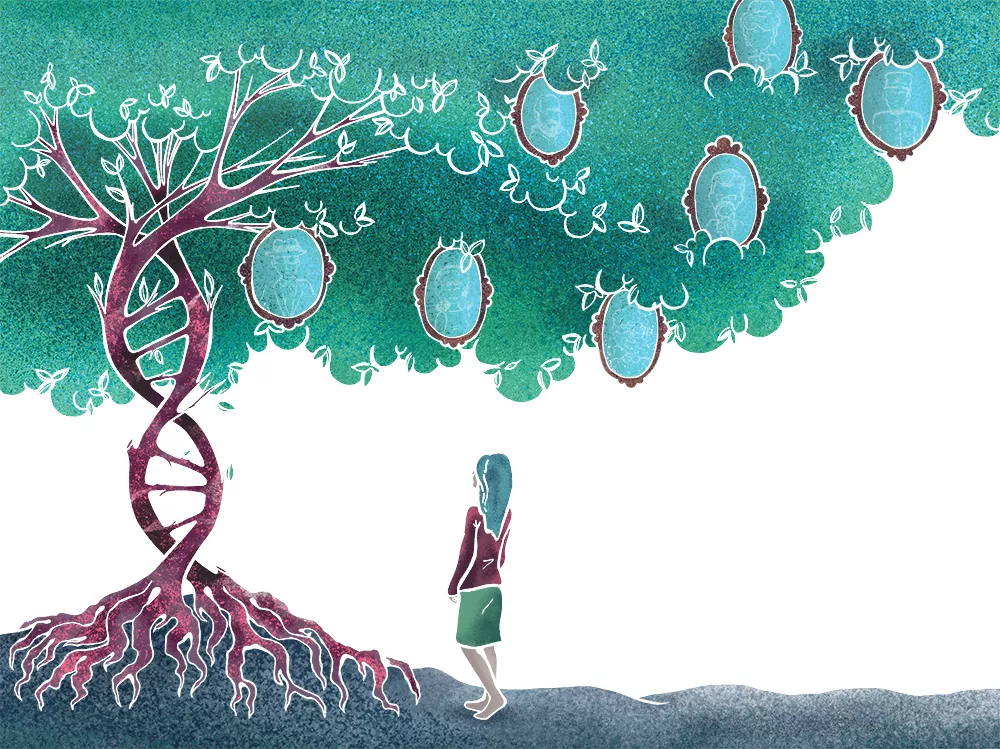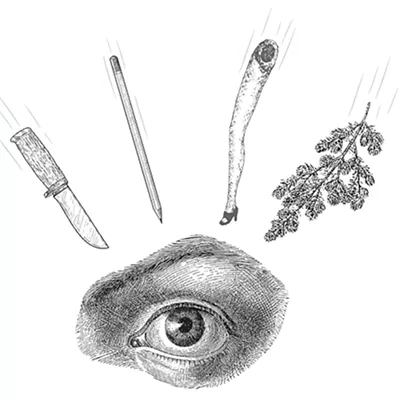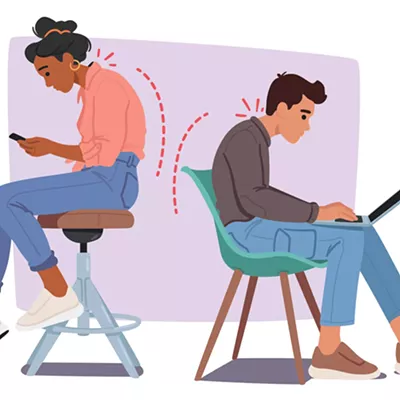Identities divide us. Democrat or Republican. Black or white. Male, female, transgender or gender nonconforming. Gay or straight. Christian or Muslim. Spokanite or Seattleite. South Hill or Hillyard.
In some ways, we're allowed to choose our identities. Others are inescapable. In the past several years, as DNA testing has become more affordable, through services such as ancestry.com and 23andMe, millions of Americans are discovering hidden truths and finding definitive answers about their lineages.
Some are affirming of the stories and beliefs they've held their entire lives. Some results rock that foundation and force people to reconcile that undeniable evidence with previous notions of themselves built on race, family, tradition, religion and country of origin.
As more people pour their DNA into these databases, and as the technology gets smarter, faster and cheaper, we stand to learn more about where we came from, both in terms of people and place, but also how to treat diseases for one person and another, and yes, even our most genetically optimized partner. Although there is an app that will combine your DNA and social media profiles, the science of a match based on genetics is, at best, shaky.
"DNA is a very transitional point in genealogy," says Kelsi-Lyn Smith, an accredited genealogical researcher for ancestry.com. "A lot of people see their ancestry as a weight. I see it more like support."
Smith, who is 28 and lives in Spokane, has built an elaborate family tree, with some lines reaching back hundreds of years. When ancestry.com users click the button for "expert" help tracing their own lineages, Smith is on the other end fielding those questions.
By submitting her own DNA to ancestry.com's database, she's found several more relatives and some incredible stories — including a connection to King Henry VII.
Others who shared their experiences with Health & Home have been surprised by the results. One woman uncovered a 50-year family secret about her biological father, and another discovered Irish ancestry despite her father's fierce insistence that the family is Scottish.
Each one of the these people was looking to satisfy his or her curiosity. Where they found some answers, more questions popped up. But one thing is sure, despite our beliefs about ourselves, and despite the identities that divide us, we're more alike than we think.

ROYALS
Perhaps on some level, Kelsi-Lyn Smith always knew she had royal blood. When she was little, her grandmother used to call her a "Welsh princess," and an "English rose." And she's always been fascinated with everything Tudor-era England, in part because of her knowledge of her family history.
That knowledge came from her paternal grandmother, Pauline, a former librarian and keeper of the family's stories, secrets and heritage. Smith is now preparing to take over that role.
"Education and culture are incredibly important in my family," Smith says.
Before she submitted her DNA to ancestry.com, Smith knew a lot about one branch of her family and little about another, beyond a few pictures and talk of a Jewish heritage.
The DNA results confirmed her Jewish ancestry, but they also helped her find several cousins she hadn't met, some of whom live in Spokane. The DNA also revealed fascinating stories about her ancestors.
Among the more recent family members Smith found are a long line of "badass women," she says. Her great grandmother was a single mom who raised four kids, she says, at a time when that was fairly uncommon.
That woman was also a scientist at Kaiser Aluminum.
Going even further back, another male ancestor helped smuggle slaves into Oregon Country to freedom, Smith says. And another defeated the governor of North Carolina in a duel.
"Along that same line there was a very rich family who owned a plantation," she says. "And it went back to this family coming over on one of the original ships that came to the Americas. Sometimes in genealogy, those families are referred to as 'Mayflower descendants.'"
Even further back, Smith was able to trace her lineage all the way up to the Seymour family line and Jane Seymour, who was the third wife of King Henry VIII. She gave birth to King Henry's first male heir, who eventually became King Edward VI.
"In my eyes, it was reaffirming," she says. "It was like 'Oh that's why I'm this way. I come from a long line of badasses.' Empowering is another way to say it."
But while some dig into their past and find affirmation, for others, DNA results can obliterate the stories they've been led to believe their entire lives.
LAURA AND LARRY
For 50 years, Laura Lynn Koger thought both of her fathers' names were Larry. Koger is adopted, and both her biological father and her adoptive father are named Larry.
Or at least that's the name that appears on her birth certificate.
About a year ago, Koger hired a private investigator to find her birth parents. In less than a day, the PI found them.
Koger says her initial interaction with her birth mother, Martha, over the phone was uneasy, though she found out about a sister Koger didn't know she had. Koger has met her sister once in person, and hopes one day they can have a relationship. She's not so sure about her mother.
The man listed on her birth certificate, Larry, is living in North Carolina. But he doesn't look anything like Koger, she says. She had to know for sure, so she and Larry submitted DNA for testing. The results?
Larry is not her father. Her birth certificate is wrong, which means that for 50 years, not only did Koger believe her biological father was Larry Raeburn, but Raeburn believed he had a daughter he didn't know.
Koger says she confronted her birth mother about the discrepancy.
"That's all I was seeking was the truth," she says. "The truth would have been nice from the beginning. When I confronted her on the phone, she said 'That's bullshit,' and hung up on me."
Her birth mother later sent her a letter explaining the situation. She writes that shortly before she went to visit Larry at his college in Alabama, she went dancing one night with a friend, and met a man in a brown suit. They spent the night together, she explains in the letter, but she cannot remember his name, only that he was a good dancer.
"I stayed with him that night," Koger's biological mother writes. "No doubt this has to be the guy who got me pregnant. The only thing I remember about him is he was an average size, wore a brown suit. I never saw him again and his name is a total blank."
Koger says she feels let down, but she's not angry. In fact, the whole thing has given her a new perspective on the parents who raised her.
"It gave me 100 percent gratuity to the family I do have, and the mom and dad who raised me," she says. "They're wonderful and loving people. I had a structured and loving family, and I'm happy for that because a lot of kids get adopted and don't have a great life, but I did. It wasn't rich in money, but it was simple."
For her 50th birthday last year, she received flowers from Larry, the man who is still listed on her birth certificate, even after he found out she wasn't actually his daughter.
"I remember him saying he had been waiting 50 years to send me flowers," she says. "I hope to take a trip to visit him and his family some day. But for now, his name is on my birth certificate, and I'm good with that."
NEW LINEAGE
Like Smith and Koger, Spokane City Councilwoman Lori Kinnear was also curious about her ancestry.
A family member had traced some of her heritage back to the 1100s in Scotland, which confirmed the culture in which she was raised, she says.
"I grew up in a very Scottish culture," Kinnear says. "Immersed. And when I got the results back, about 33 percent was Welsh, Scottish and Irish."
It was the Irish heritage that surprised her most. Along with being immersed in Scottish culture, she says, her father frequently spoke disparagingly of the Irish.
"If he knew we're Irish, he'd probably be spinning in his grave," she says. "He so fiercely wanted that Scottish identity. It was always: 'We're Scottish.' Apparently not."
While the Irish heritage is a pleasant surprise for her, Kinnear says she was disappointed when no African heritage showed up.
"I'm kind of a disrupter, and would have liked to have gone back and said 'Hey! We're part African.'"
Although that wasn't Kinnear's experience, others have been surprised to learn of unexpected heritage. News reports of white nationalists finding African lineage, for example, have popped up around the country.
CHANGING PERCEPTIONS
Catherine Ball, the chief scientific officer at ancestry.com, says those kinds of surprises happen all the time.
In a 2017 interview with Wired Magazine, Ball talked about how DNA is changing people's ideas of themselves and their families.
"We're working really hard to separate ourselves from others based on our careers or religions or the parts of our family history we'd like to put forward," Ball says. "But instead we have so much more in common. We are far more related to each other. The reasons we're here have to do with wars and famines and droughts and political issues and opening up homesteads somewhere and so much less to do with the ego and the individuals at play. We live in a river of history."
By some estimates, around 12 million people (mostly Americans) had submitted DNA for testing by the end of 2017. Ancestry.com announced earlier this year that the company has tested seven million people. 23andMe comes in second with around three million.
As companies continue to amass huge databases, we stand to learn much more about ourselves as individuals but also human behavior on a large scale.
While some research digs into humans' post-colonial migration patterns, other studies explore individuals' perceptions of themselves, and how that differs from the DNA results. The researchers with the DNA Discussion Project out of West Chester University in Pennsylvania, for example, found that generally, people of color tended to expect more diversity in their results, whereas white people tended to predict close to 100 percent European heritage.
"The DNA Discussion Project's findings support the notion that culturally, narratives function less to advance the 'truth,' but rather to give the most advantageous plausible explanation of one's circumstances," the researchers write.
And this year, the chief scientific officer for MyHeritage used DNA results to build a 13 million-person family tree.
"The DNA is the proof, the story is in the paper trail: newspaper articles and photos," says Smith, the local genealogical expert for ancestry.com. "I think they should be used together. You can have your family of your choosing, but I think there's something to be said for the family in your blood. It's almost unavoidable."
Testing Frenzy
The number of people worldwide who used consumer genetic tests to analyze their DNA more than doubled in 2017, soaring to 12 million. An astounding 2 million people submitted tests to ancestry.com in the last four months of 2017 alone.
Ancestry is by far the largest purveyor of home tests, followed by 23andMe, MyHeritage and FamilyTreeDNA, according to the MIT Technology Review. Most offer testing for $100 or less, with occasional specials bringing the price to $70 or lower.
Ancestry employs more than 1,600 people, most of them in Utah, and reports its members conduct 75 million searches each day. There are 100 million family trees in Ancestry's database, including 10 billion ancestral profiles. Records on the site go back as far as the 13th Century.
— ANNE McGREGOR
Don't Know Much Biology
75
The percentage of respondents who did not know how many pairs of chromosomes humans have, in a 2017 23andMe survey
23
Number of pairs of chromosomes in humans
X-tra credit
Females have two X chromosomes; males have an X and a Y chromosome
—ANNE McGREGOR
















